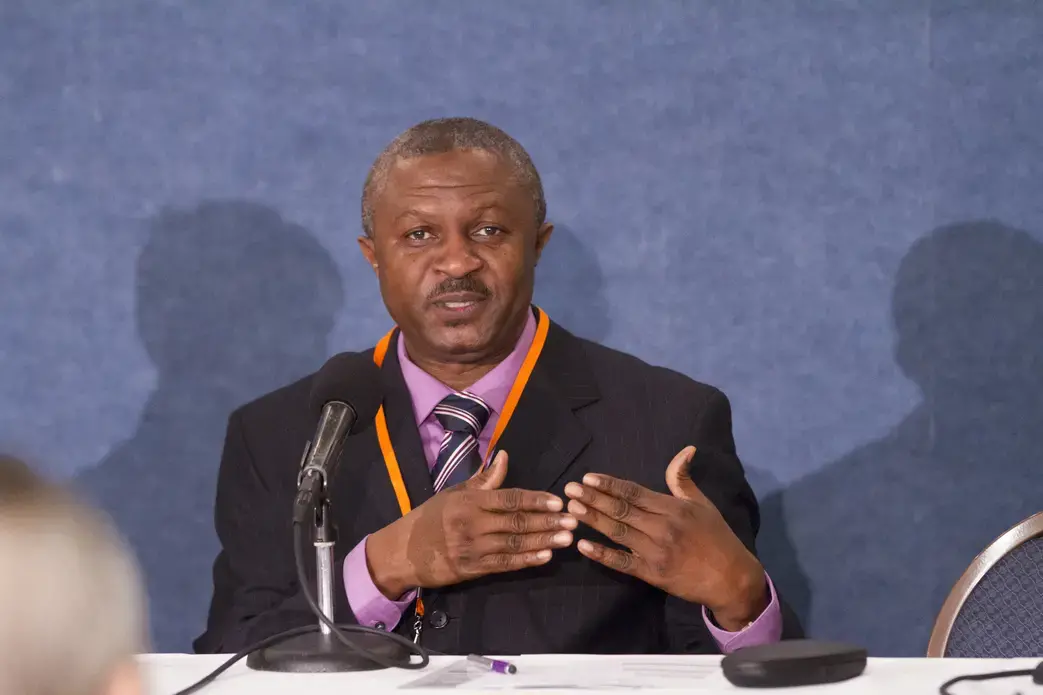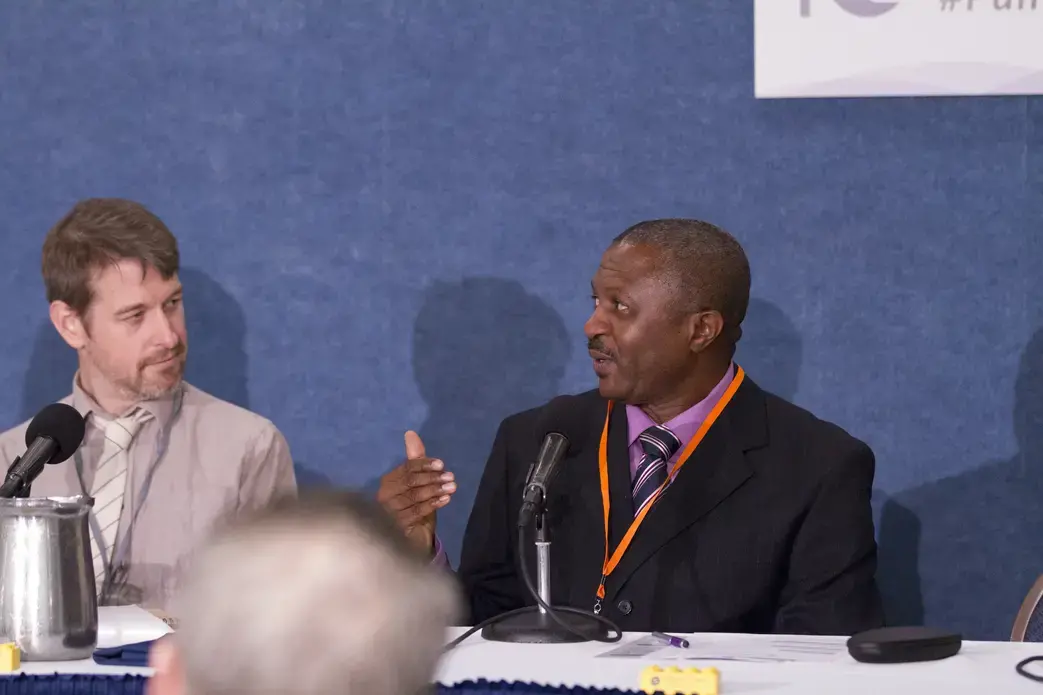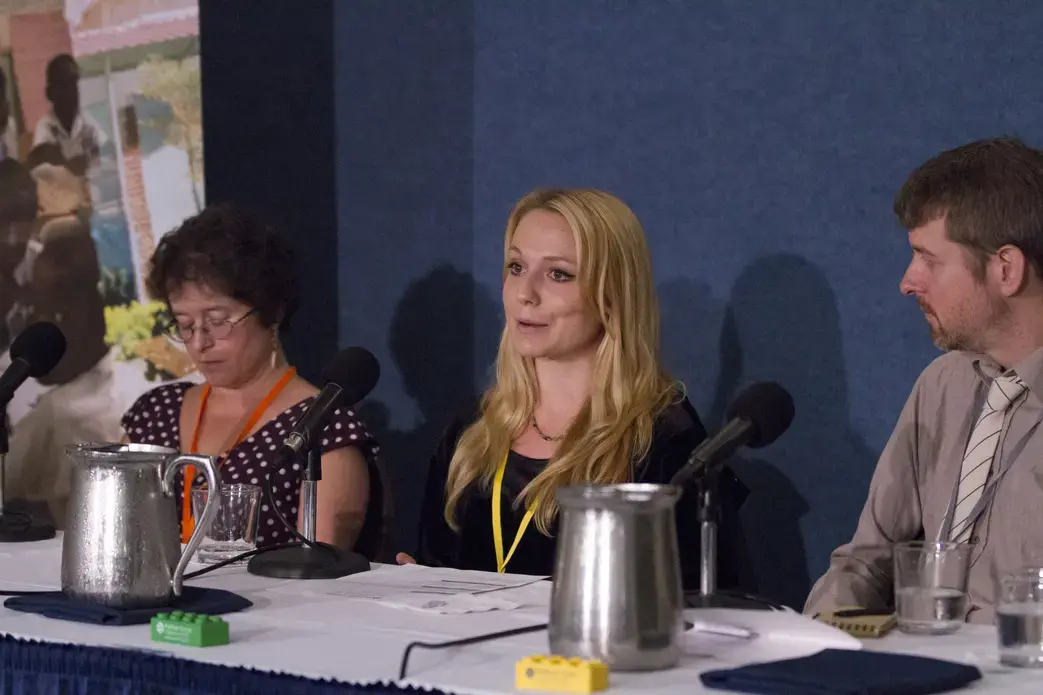Pulitzer Center Update October 18, 2016
Campus Consortium Continues Expanding, Adding Value




It's been an explosive year for the Pulitzer Center's Campus Consortium program. We've exceeded our goals to increase the diversity of the students we support—a diversity of experience, socioeconomic status, physical location, heritage, as well as reporting and academic interests. We're creating partnerships with Flagler College, Spelman and Morehouse Colleges, City Colleges of Chicago, Texas Christian University's Bob Schieffer College of Communications, the Yale Program on Climate Change Communication, Northwestern's Medill School of Journalism, and Columbia University's School of Journalism.
As we celebrated our 10th anniversary, we brought together this month members of the Pulitzer Center family who have influenced, and been influential to, the Campus Consortium program. This year we honored 31 student fellows who reported from 24 countries around the world. On Saturday, October 8, at the National Press Club, we brought together Meredith Clason, Associate Director, Center for Eastern European and Russian/Eurasian Studies at the University of Chicago, Uche Onyebadi, Chair of the Department of Journalism at Texas Christian University's Bob Schieffer College of Communication, Janice Cantieri, a student fellow alum from the Washington University in St. Louis, and Rob Tinworth, a grantee and filmmaker whose film "The Life Equation" aired on PBS NewsHour in February of this year, to hear what makes the Pulitzer Center Campus Consortium so special.
Clason started the discussion by lauding the past success of multidisciplinary Campus Consortium programming with the University of Chicago. In the coming weeks, she's looking forward to welcoming Education Outreach Coordinator Lauren Shepherd and grantee filmmaker Karim Chrobog for visits to another Campus Consortium partner, City Colleges of Chicago: with culinary arts students at Kennedy-King College, microbiology students at Harold-Washington College and visual media and communications students Harry S. Truman College.
Onyebadi, who fostered our partnership with SIU Carbondale during his time as an Associate Professor and Director of the School of Journalism, explained his relationship with the Campus Consortium using a quote. "I'll start with something they say back home in Nigeria. 'If a road is good, you take it multiple times.'" SIU Carbondale students number among some of the most successful Pulitzer Center student reporting fellowships. So when Onyebadi moved to his new position at TCU's Bob Schieffer College of Communications, he persuaded his dean there to sign on with the Consortium. "I believe this partnership is going to take us a long way," he said.
The audience also heard from students who receive reporting fellowships and Pulitzer Center grantees who present their work at partner universities.
Cantieri, a 2015 student fellow from the Washington University in St. Louis, reported on climate change in the island nation of Kiribati. She then went on to become a 2016 Fulbright-National Geographic Storyteller before enrolling at Northwestern's Medill School of Journalism. "I didn't even know it was possible that journalism was a career option," she explained. But completing her Pulitzer Center fellowship changed that. "If it wasn't for that first opportunity to see how real journalists work, I wouldn't have followed this path," she said.
Tinworth shared anecdotes of screening his documentary, "The Life Equation," for middle schoolers and high schoolers in Washington, D.C, and for public health students at The George Washington University. Tinworth's presentation includes interactive polling that places life or death decisions for allocating health care dollars in the hands of students. Despite the film's topical interest and the popularity of the interactive poll, Tinworth was worried that students wouldn't be engaged. He was wrong.
"You said journalists were badgered into doing this. But...it's a real privilege to be able to do this. Because we sadly live in a world where things are driven by likes and plays. What's fabulous about the work you do is that, if we followed this to its most extreme, we'd all be making films about cats. It's wonderful that we can make products that aren't going to be the most viewed thing that you have, but they have value beyond that."
If the Campus Consortium program seems too good to be true, it isn't. When an audience member asked what the Pulitzer Center's angle was in creating these partnerships, Fareed Mostoufi, our Senior Education Manager, explained it best.
"It's really about partnering with educators, knowing that they're experts with their classes and their content, and letting them know that we have a bank of resources to help them reach their goals—plus an ensemble of great journalists! It's seeing what questions students have, seeing what reporting matches, and also implementing reporting skills. Is there a local issue students want to talk about? We have resources to tackle that. Where can we globalize the conversation?"





